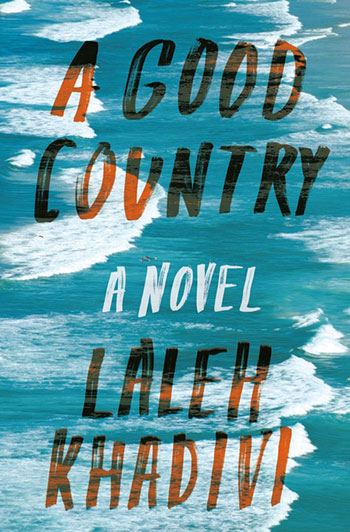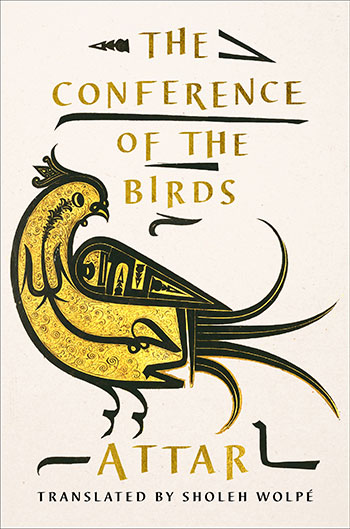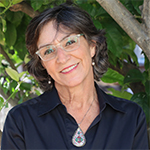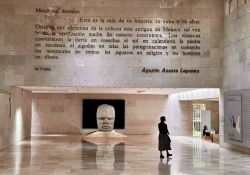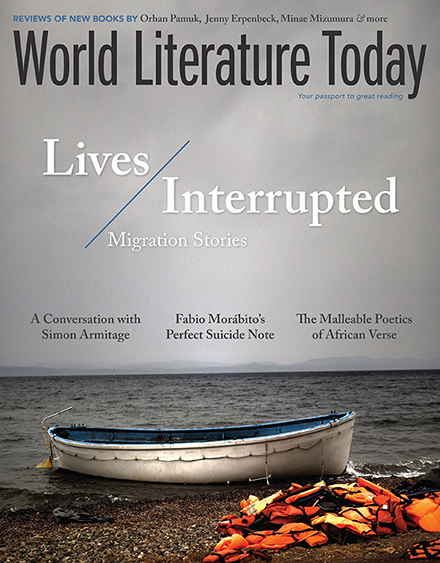“We Carry Home within Us”: A Conversation with Laleh Khadivi & Sholeh Wolpé
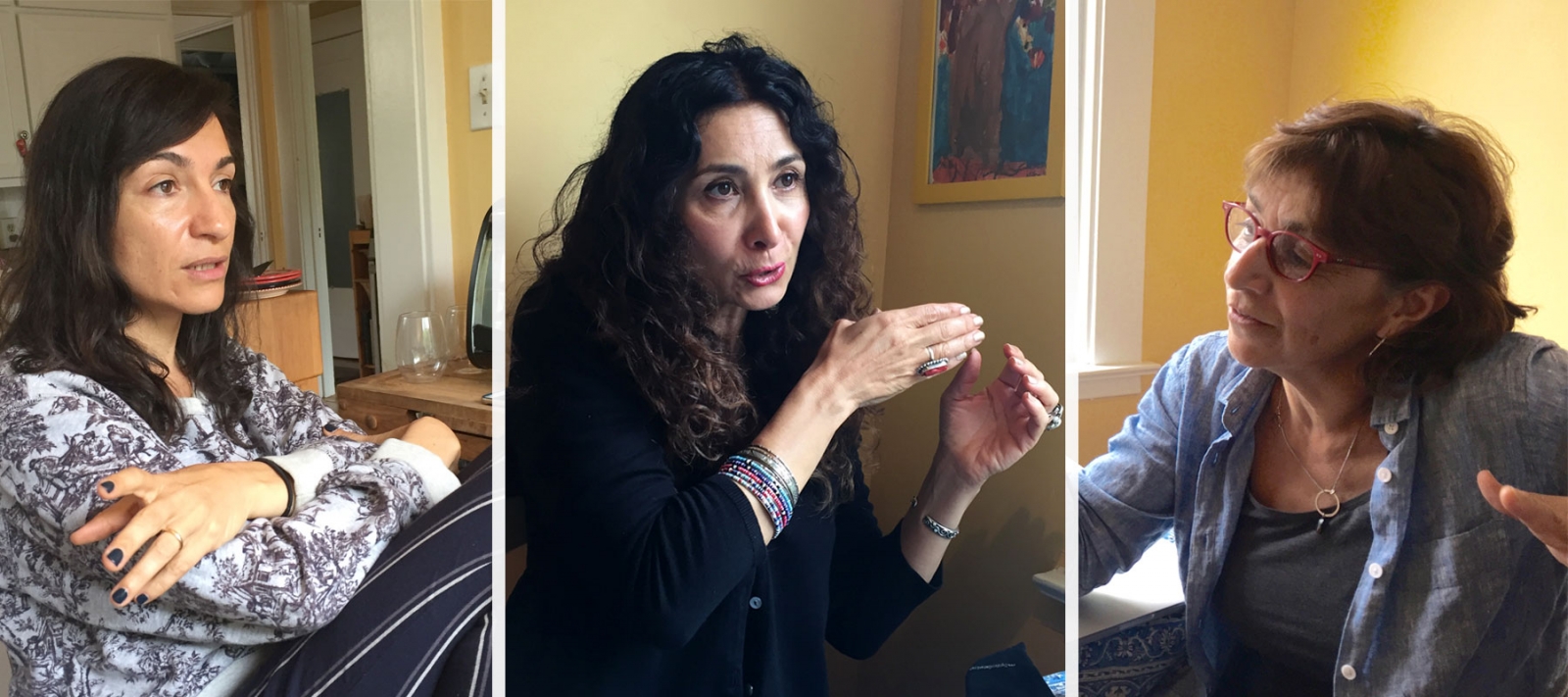
Persis Karim, a poet and the editor of three anthologies of Iranian diaspora literature, is the Neda Nobari Chair of the newly established Center for Iranian Diaspora Studies at San Francisco State University. In her new position, Karim is in the unique position to provide institutional recognition for the emerging field of Iranian diaspora studies—an extension of her long career of editing and promoting Iranian American literature and curating articles and anthologies of writers of Iranian origin. She sat down with novelist Laleh Khadivi and poet and translator Sholeh Wolpé to speak about their contributions to Iranian diaspora literature and the ways that the literature of Iranian Americans is reshaping our perceptions of Iran and the diaspora.
Persis Karim: It’s great to have you in my kitchen in Berkeley for this informal conversation.
Sholeh Wolpé: Thank you for the delicious Persian lunch. You make a great herb kookoo. Perhaps you can include the recipe for WLT’s readers.
Karim: Maybe I will! But first, tell us how each of you came to writing?
Laleh Khadivi: I came to writing late, after being a filmmaker and after dropping out of medical school. I was twenty-three when I decided to try my hand at fiction. I started writing stories that came from the generation before me (my grandparents). I wanted to know who my grandparents were. By the time I was done writing the story, it had very little to do with them. It was just a portal. I had interviewed my aunts and uncles, but almost all the stories varied; they all said contradictory things. But the things they did say about the place, the atmosphere, about western Iran, and Kermanshah, those did agree. And that was very useful. And when I wanted to write the story of the protagonist, I did historical research.
Wolpé: How did you get the truth out of your relatives? There is a concept of ab-roo in Iranian culture—saving face. It is hard to get people to speak openly and honestly.
Khadivi: I had been interviewing people for a long time for other projects. I was good at listening to women in prison, sometimes telling the truth, sometimes telling a lie. I realized that lies are just as interesting as the truth. This lends itself to a richer, more layered, multidimensional story. And the fiction writer gets to do what she wants with that.
Wolpé: A lot of times people tell the truth, but they omit and change things. What seems to have worked for you, is that you interviewed six people, and those omissions led you to a fuller story.
Khadivi: The notion of Iranians carrying all this shame, that they don’t want to reveal themselves, that they have to omit things—that gives the fiction writer a delicious license.
Karim: What about you, Sholeh? How did you come to writing?
Wolpé: I was always fond of spinning tales. I used to write stories about our city, Tehran, and read them to my parents. They always listened patiently, then asked if I had done my math homework. I was a terrible student in just about every subject except literature. I hated history too, because they used no imagination in telling the fantastic stories of the world. All were dry facts and dates we had to memorize. I hated it. I was fond of debating with older people, something children weren’t allowed to do. It was impolite to contradict your elders. I think that’s why my parents sent me off at age thirteen to my aunt in Trinidad. She was strict. But she also opened a whole new world to me for which I’ll always be grateful.
Karim: When did you begin to publish your work?
Wolpé: I didn’t start submitting my writings for publication until I was in my late thirties. I come from a family that puts great value on professions that “produce” something tangible with guaranteed monetary results. Because father refused to pay for private school degrees in writing or literature, I got my two master’s degrees in other fields. But that turned out to be a great gift; it put me in the world. I was left to my imagination to create my own path. Wedged between two languages and cultures, I created my own world and drew from both languages to find my own voice.
Karim: What about you, Laleh? How old were you when you left Iran? And do you have some of those conflicts of identity in yourself?
Khadivi: I was two when we left, but five when we arrived in the US. Do I have those conflicts? Yes. I am still troubled by having to stand up during a sports event and sing the national anthem.
Wolpé: We did that in Iran for the Shah, before every public event, even at the movies. I was a kid, and I never even questioned that gesture. My parents never spoke about politics. At least not in front of us.
Khadivi: We didn’t live in Iran, exclusively. We moved around a lot; we lived in Poland, England, and some other places, and so I was always the new kid.
Karim: You too, Sholeh, you seemed to move around a good deal as well.
Wolpé: Yes, and because I was older than you, Laleh, when I left Iran, I carried inside me a deep longing for my home. It became a “thing” that consumed me, an idea that shifted, solidified, shattered, then glued itself back together—over and over. Home became a desire never fulfilled, always out of reach. It became a holy grail I searched and longed for. But over the years, it kept shape-shifting. Was it a country, a place you buy and live in? Was it my husband, lover, or children?
Home became a “thing” that consumed me, an idea that shifted, solidified, shattered, then glued itself back together—over and over. Home became a desire never fulfilled, always out of reach. – Sholeh Wolpé
Khadivi: My father is Kurdish. My mother is from Isfahan. My father spoke of it often, and it was fascinating to me. Growing up in high school and college and learning about the Kurds—a people of forty-five million without a country—fascinated me. The Kurds are a good example of that idea of nationality or, rather, postnationality since they live in a wide swath of geography and the Kurds don’t all identify the same way.
Wolpé: Yes, and yet they share so much. I have come to believe that home (or country) is not external. We carry it within us. Always. If all of us truly felt and understood that, all artificial boundaries drawn between people and nations would vanish.
Karim: Which brings us to your trilogy, Laleh. The Age of Orphans, The Walking, and the third book, A Good Country, just published this summer.
Khadivi: Yes, I was indeed drawn to the idea of writing a trilogy because I wanted to track the inheritance as well as tribal belonging, national belonging, and postnational belonging for my characters. I wanted to trace over three generations of men how they inherit a sense of place, a sense of belonging. How do you know who you are and what you represent? For example, are you Iranian first, Christian second? Or Kurdish first, Iranian second? Muslim first, Iranian second? In which order do these identities fall? What happens? As part of the diaspora, we are inheritors of this history; we carry these conflicts, these ruptures of history. We live here because we decided, or our parents decided, that the national identity of Iranians in Iran wouldn’t work. So then we come here and we have to decide what our children’s identity is. Are we Iranian or American? That’s all the stuff I wanted to figure out in my novels.
As part of the diaspora, we are inheritors of this history; we carry these conflicts, these ruptures of history. – Laleh Khadivi
Karim: Sholeh, you have several books of poems, translations, and anthologies, and you are now writing your second play, but it seems your English translation of Attar’s The Conference of the Birds has made a significant impact on your personal life.
Wolpé: Yes, I spent three years dedicated to this project, and it was one of the best things I’ve ever done for myself and, I hope, for English-speaking readers. The Conference of the Birds is a masterpiece of extraordinary spiritual depth, and as I cut to the bone and marrow of it in order to re-create it as a living, breathing work of literature in English, it offered me moments of great clarity about who I am and what I want to contribute to the world, in my own humble fashion. For example, I saw how we have been going about the business of “peace” adopting the language of war. War on drugs, battling terrorism, crushing evil, demolishing darkness, etc. Attar has taught me that the only way to dispel darkness is to walk into it, to illuminate it. Watts and watts of juice. Twinkling, and tingling with starlight. Sunlight. Soul light. Heart light. Mind light. Whatever makes you glow. That is the only recipe for dispelling darkness.
June 2017
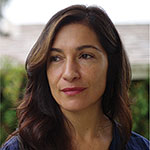 Laleh Khadivi’s latest novel is A Good Country (2017). She is the recipient of a 2016 National Endowment for the Arts Grant and a 2016 Pushcart Prize for her story “Wanderlust.” She lives in Northern California.
Laleh Khadivi’s latest novel is A Good Country (2017). She is the recipient of a 2016 National Endowment for the Arts Grant and a 2016 Pushcart Prize for her story “Wanderlust.” She lives in Northern California.
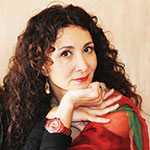
A recipient of the 2014 PEN/Heim, 2013 Midwest Book Award, and 2010 Lois Roth Persian Translation prize, among others, Sholeh Wolpé’s literary work includes four collections of poetry, two plays, three books of translations, and three anthologies.
